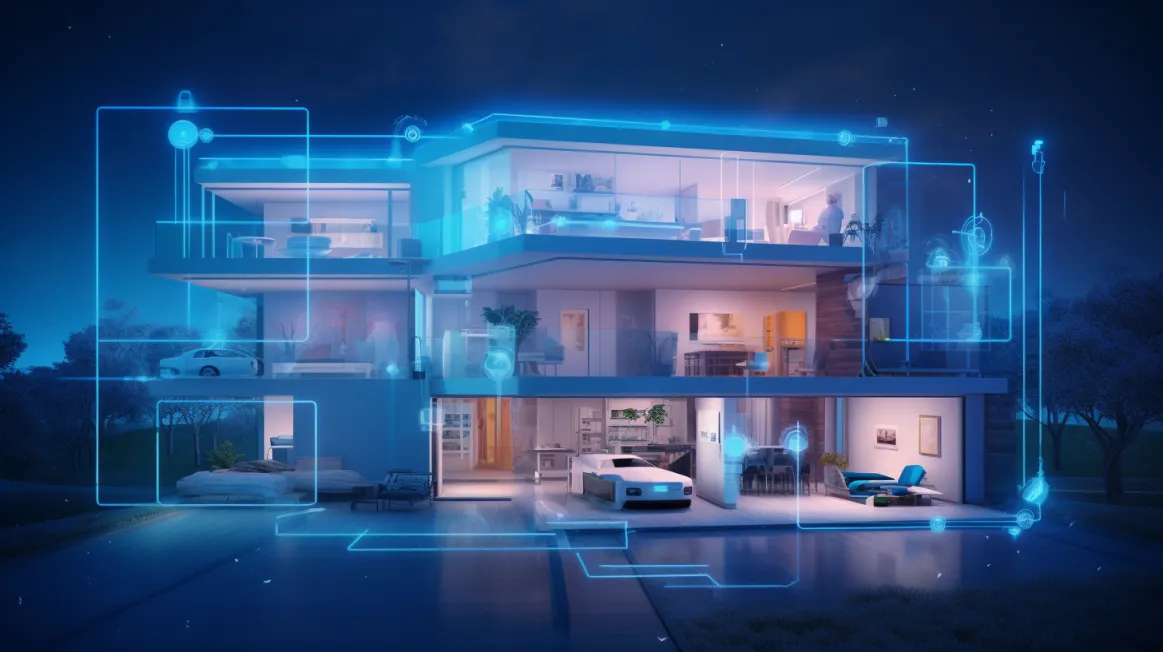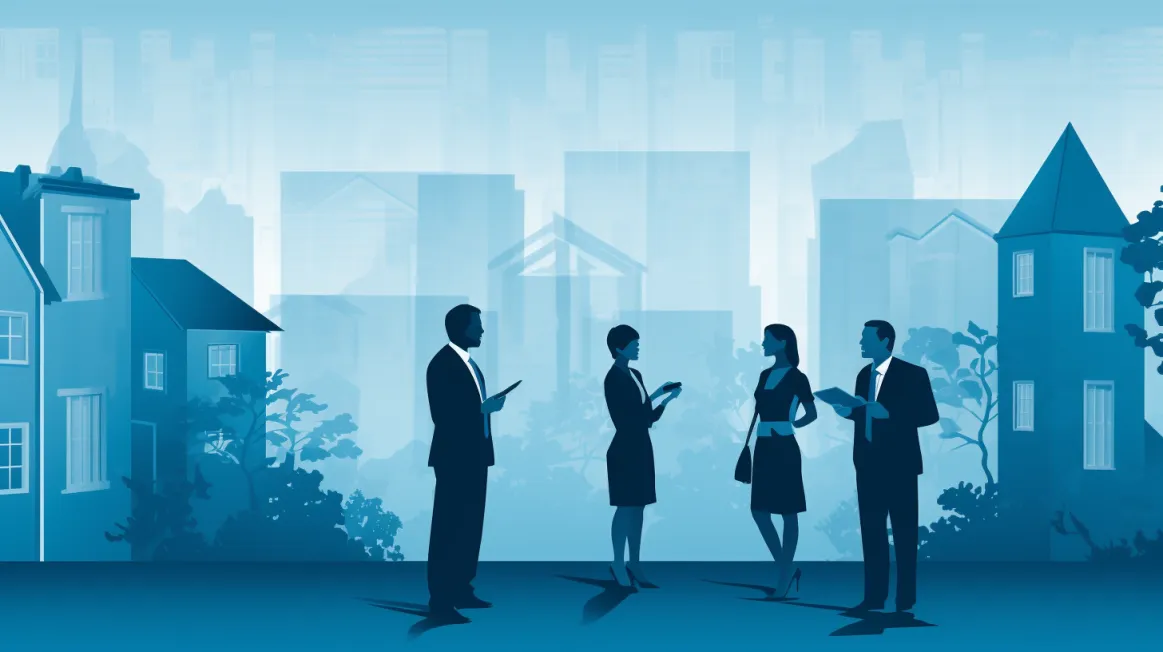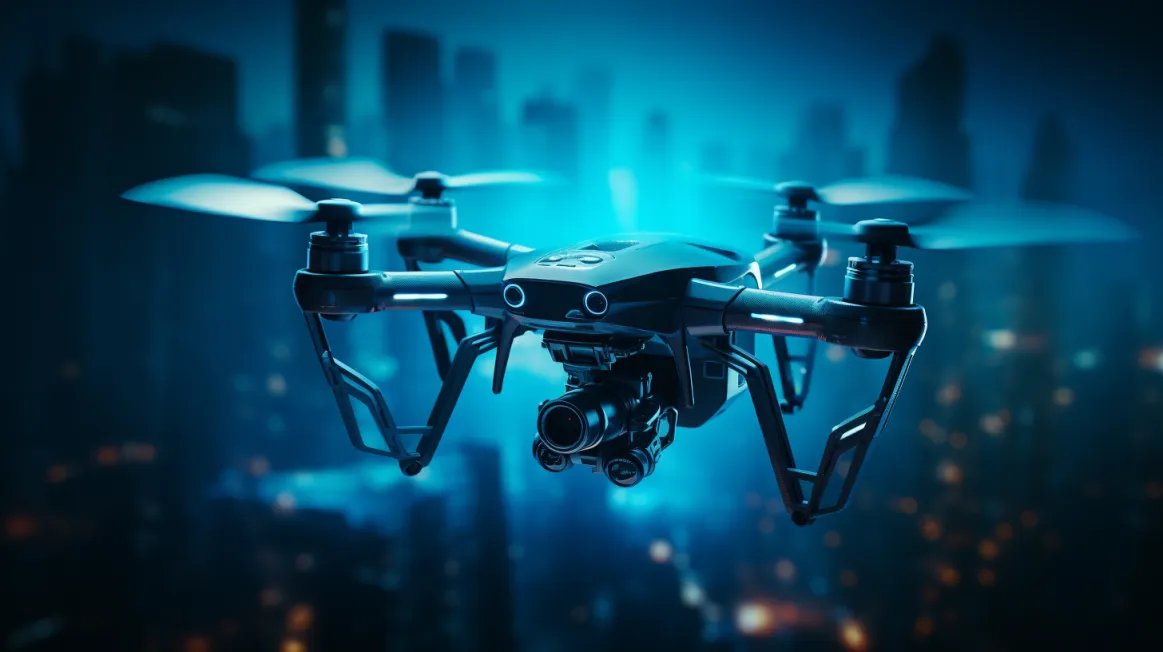Table of Contents
The Innovation in Property Management industry is undergoing a rapid transformation in the digital age. Property managers and owners are facing new challenges and opportunities as they have to deal with changing market conditions, customer expectations, and regulatory requirements. However, they also have access to a wide range of innovative technologies and solutions that can help them improve their property management processes and outcomes.
In this blog post, we will discuss the top trends and innovations in property management, such as artificial intelligence, immersive technologies, the Internet of Things, building management systems, big data and analytics, property management software, blockchain, property aggregation platforms, drones, and data security.
We will also provide tips on how to implement or adopt these innovations in your own property management business. By leveraging innovation and technology in property management, you can reduce your costs, increase your efficiency, and gain a competitive edge in the industry.
Artificial Intelligence and Machine Learning
Artificial intelligence (AI) and machine learning (ML) are technologies that enable machines to perform tasks that normally require human intelligence, such as data analysis, automation, and optimization. AI and ML can help property managers and owners to:
- Automate repetitive and tedious tasks, such as screening tenants, generating leases, collecting rent, sending reminders, and handling maintenance requests
- Analyze large and complex data sets, such as market trends, tenant behavior, property performance, and feedback
- Optimize property management decisions, such as pricing, marketing, leasing, and maintenance
- Enhance customer service and experience, such as providing chatbots, voice assistants, and personalized recommendations
Start small and experiment with different technologies and applications if you want to apply or utilize AI and ML in your own to innovation in property management firm. You can employ market-available AI and ML tools and platforms, or you can work with AI and ML specialists and developers to create customized solutions. You may also test and quantify the impact and value of AI and machine learning on your property management operations and outcomes.
Immersive Technologies
Immersive technologies, such as virtual reality (VR) and augmented reality (AR), are technologies that create or enhance a simulated or interactive environment that immerses the user in a realistic or imaginary experience. VR and AR can help property managers and owners to:
- Provide virtual tours and inspections of properties, which can save time, money, and resources, and attract more potential tenants and buyers
- Enhance marketing and branding of properties, which can increase exposure, engagement, and conversion
- Improve training and education of property management staff, which can increase their skills, knowledge, and performance
- Create immersive and interactive experiences for tenants and guests, which can increase their satisfaction and loyalty
One advice for implementing or adopting VR and AR in your property management firm is to invest in the appropriate hardware and software to produce and distribute VR and AR experiences. You can use market-available VR and AR tools and platforms, or you can collaborate with VR and AR professionals and developers to create customized solutions. You may also track and assess the comments and outcomes of your VR and AR initiatives to enhance them.
Internet of Things and Smart Home Solutions

Internet of Things (IoT) and smart home solutions are technologies that connect physical devices and appliances to the Internet and enable them to communicate and exchange data and commands. IoT and smart home solutions can help property managers and owners to:
- Monitor and control properties remotely, such as adjusting temperature, lighting, security, and appliances
- Automate and optimize property functions and operations, such as energy consumption, maintenance, and safety
- Enhance tenant comfort and convenience, such as providing voice and gesture control, personalized settings, and smart notifications
- Collect and analyze data and insights on property performance and tenant behavior, such as energy usage, occupancy, and feedback
Identify and prioritize the areas and functions that can benefit from IoT and smart home solutions when implementing or adopting IoT and smart home solutions in your innovation in property management firm. You can employ market-available IoT and smart home devices and platforms, or you can collaborate with IoT and smart home specialists and developers to create customized solutions. You may also track and quantify the impact and value of IoT and smart home technologies on your innovation innovation in property management operations and results.
Building Management Systems
Building management systems (BMS) are systems that integrate and coordinate the various systems and components of a building, such as HVAC, lighting, security, fire, and elevators. BMS can help property managers and owners to:
- Manage and optimize the performance and efficiency of building systems and components, such as reducing energy consumption, improving comfort, and extending lifespan
- Monitor and control building systems and components remotely, such as adjusting settings, scheduling operations, and detecting faults
- Enhance building security and safety, such as providing access control, surveillance, and emergency response
- Collect and analyze data and insights on building performance and conditions, such as energy usage, occupancy, and environmental factors
Assess and audit the current state and condition of your building systems and components before implementing or adopting BMS in your own innovation in property management business.
You can use market-available BMS tools and platforms, or you can collaborate with BMS experts and developers to create your customized solutions. You can also benchmark and compare your building systems’ and components’ performance and efficiency to industry standards and best practices.
Big Data and Analytics
Big data and analytics are technologies that enable the collection, processing, and analysis of large and complex data sets that can provide valuable insights and information for decision-making and problem-solving. Big data and analytics can help property managers and owners to:
- Conduct market research and analysis, such as identifying market trends, opportunities, and threats, and benchmarking against competitors and industry standards
- Perform pricing and forecasting, such as setting optimal rental rates, predicting demand and supply, and maximizing revenue and profit
- Enhance customer segmentation and targeting, such as understanding customer preferences, behavior, and feedback, and creating personalized and relevant offers and messages
- Improve customer retention and loyalty, such as identifying customer satisfaction and dissatisfaction factors, and providing incentives and rewards
Collect and integrate data from various sources and channels, such as innovation in property management software, online platforms, social media, and surveys, to learn how to implement or adopt big data and analytics in your innovation in property management business.
You can use market-available big data and analytics tools and platforms, or you can collaborate with big data and analytics experts and developers to create your customized solutions. Dashboards, charts, and graphs can also be used to visualize and communicate your data and insights.
Innovation in Property Management Software

Property management software (PMS) is a software application that enables property managers and owners to manage and automate various aspects of their innovation in property management operations, such as leasing, payment, communication, and maintenance. PMS can help property managers and owners to:
- Streamline and simplify innovation in property management workflows and processes, such as creating and signing leases, collecting and processing rent, sending and receiving messages, and scheduling and tracking maintenance
- Reduce human errors and risks, such as missing payments, losing documents, and violating regulations
- Increase productivity and efficiency, such as saving time, money, and resources, and improving performance and quality
- Enhance customer service and experience, such as providing online and mobile access, convenience, and security
A tip on how to implement or adopt PMS in your innovation in property management business is to choose and use a PMS that suits your needs, goals, and budget. You can use PMS tools and platforms available in the market, or you can partner with PMS experts and developers to create customized solutions. You can also train and educate your staff and customers on how to use and benefit from PMS.
Blockchain and Smart Contracts
Blockchain and smart contracts are technologies that enable the creation and execution of secure, transparent, and decentralized transactions and agreements without the need for intermediaries or third parties. Blockchain and smart contracts can help property managers and owners to:
- Reduce transaction costs and risks, such as fees, commissions, fraud, and disputes
- Increase transaction speed and efficiency by eliminating delays, errors, and paperwork
- Enhance transaction security and privacy, such as encrypting and verifying data and identities and preventing tampering and hacking
- Improve transaction trust and transparency, such as recording and sharing data and transactions on a public and immutable ledger
Understanding and adhering to the legal and regulatory frameworks and standards that govern blockchain and smart contracts in your jurisdiction and industry is a tip on how to implement or adopt blockchain and smart contracts in your own innovation in property management, and proper management business.
You can use market-available blockchain and smart contracts tools and platforms, or you can collaborate with blockchain and smart contracts experts and developers to create your customized solutions. You can also educate and inform your employees and customers about the benefits of blockchain and smart contracts.
Property Aggregation Platforms
Property aggregation platforms are online platforms that enable property managers and owners to list, search, and compare properties across different sources and channels, such as websites, apps, and social media. Property aggregation platforms can help property managers and owners to:
- Increase property visibility and reach, such as reaching more potential tenants and buyers and expanding to new markets and segments
- Enhance property marketing and branding, such as creating and displaying attractive and informative property profiles, photos, and videos
- Improve property selection and matching, such as finding and filtering properties based on various criteria and preferences, and providing recommendations and suggestions
- Simplify property booking and reservation, such as providing online and mobile booking and reservation options, and integrating with payment and communication systems
Understanding and adhering to the legal and regulatory frameworks and standards that govern blockchain and smart contracts in your jurisdiction and industry is a tip on how to implement or adopt blockchain and smart contracts in your own property management business.
You can use market-available blockchain and smart contracts tools and platforms, or you can collaborate with blockchain and smart contracts experts and developers to create your customized solutions. You can also educate and inform your employees and customers about the benefits of blockchain and smart contracts.
Drones

Drones are unmanned aerial vehicles that can fly and perform various tasks and functions, such as capturing and transmitting images and videos, delivering and transporting goods and materials, and surveying and mapping areas and locations. Drones can help property managers and owners to:
- Provide aerial photography and videography of properties, which can enhance property marketing and branding, and attract more potential tenants and buyers
- Provide aerial mapping and inspection of properties, which can improve property management and maintenance, and prevent damage and risk
- Provide aerial delivery and transportation of goods and materials, which can reduce costs and time, and improve convenience and efficiency
- Provide aerial security and surveillance of properties, which can enhance property security and safety, and deter and detect threats and intrusions
Obtaining and complying with the legal and regulatory permits and licenses that govern drone operations in your jurisdiction and industry is a tip on how to implement or adopt drones in your own property management business.
You can use market-available drone tools and platforms, or you can collaborate with drone experts and developers to create customized solutions. You can also educate and train your employees and customers on how to use and benefit from drones.
Data Security
Data security is the protection of data from unauthorized access, use, modification, disclosure, and destruction. Data security can help property managers and owners to:
- Prevent data breaches and cyberattacks, which can cause financial, reputational, and legal damages, and compromise customer trust and loyalty
- Comply with data privacy and security laws and regulations, such as GDPR, CCPA, and HIPAA, which can impose strict requirements and penalties for data protection and compliance
- Enhance data quality and integrity, which can ensure the accuracy, completeness, and consistency of data and information
- Improve data management and governance, which can enable the proper collection, storage, and disposal of data and information
Assess and identify the data and information that you collect, store, and use, as well as the data and information risks and threats that you face, as a tip on how to implement or adapt data security in your own property management business.
You can use market-available data security tools and platforms, or you can collaborate with data security experts and developers to create customized solutions. You can also teach and inform your employees and customers about how to use and safeguard data and information.
Conclusion
In this blog post, we have discussed the top trends and innovations in property management, such as artificial intelligence, immersive technologies, internet of Things, building management systems, big data and analytics, property management software, blockchain, property aggregation platforms, drones, and data security.
We have also provided tips on how to implement or adopt these innovations in your own property management business. By leveraging innovation and technology in property management, you can reduce your costs, increase your efficiency, and gain a competitive edge in the industry.
We hope you have found this blog post useful and informative. Thank you for reading this blog post. If you have any questions or comments, please feel free to contact us. We would love to hear from you.